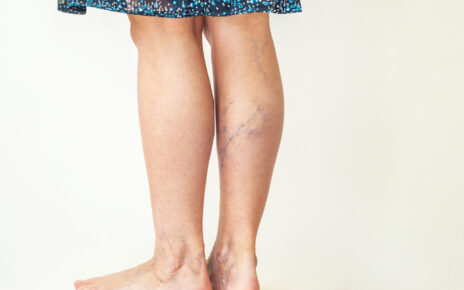Incontinence can be challenging for seniors to navigate, requiring specialized care and attention. That’s where home care services step in to provide essential support and assist with managing this sensitive condition. With their expertise in incontinence care, these services offer personalized care plans tailored to the unique needs of each senior.
At Alpenglow Homecare, we understand the importance of maintaining dignity and independence for seniors while addressing their incontinence care needs. Our compassionate and highly trained caregivers are equipped to handle all aspects of incontinence management, from assisting with regular bathroom visits and hygiene routines to ensuring comfortable and discreet use of incontinence products.
We recognize that incontinence can significantly impact a senior’s overall well-being, affecting their physical and emotional health. Through our specialized incontinence care services, we aim to enhance their quality of life and promote a sense of confidence and self-esteem.
By partnering with home care services, seniors and their families can rest assured knowing they can access professional and compassionate care in their homes. Our dedicated support allows seniors to enjoy improved comfort, better hygiene practices, and enhanced overall well-being. Experience the difference that specialized incontinence care provided by home care services can make for your loved one.
Understanding Incontinence in Seniors
Incontinence refers to the involuntary loss of urine or feces and is a common issue among older people. It can arise from various factors, including age-related changes in the body, chronic illnesses, medications, and even lifestyle choices. For many seniors, the physical and emotional toll of incontinence can be significant, creating feelings of embarrassment, isolation, and a decline in overall quality of life. Understanding the types and causes of incontinence is essential for effective management.
Seniors may experience several types of incontinence. Urinary incontinence, the most prevalent form, can be categorized into stress, urge, overflow, and functional. Each type has unique triggers and underlying causes, requiring tailored treatment and care approaches. Additionally, fecal incontinence, though less discussed, can also occur and necessitates specific attention to diet and bowel management strategies.
Recognizing the signs and symptoms is crucial for timely intervention. Due to stigma, seniors may hesitate to discuss their incontinence issues, which can lead to untreated conditions. Encouraging open communication about incontinence is vital for both seniors and their caregivers. Understanding the condition lays the groundwork for implementing effective care strategies that can alleviate the burdens of incontinence and improve seniors’ overall quality of life.
The Importance of Proper Incontinence Care
Proper incontinence care is essential not only for physical health but also for emotional well-being. Effectively managing incontinence can help maintain a senior’s dignity, preventing feelings of shame or embarrassment. When incontinence is left unaddressed, it can lead to skin irritations, infections, and other complications that can further deteriorate health. A comprehensive care plan ensures seniors receive the attention they need to manage their condition effectively and safely.
Moreover, proper incontinence care contributes significantly to seniors’ overall quality of life. With effective management, seniors can engage in daily activities more confidently and comfortably. This can lead to improved social interactions, increased participation in community activities, and a more robust mental state. When seniors feel confident in managing their incontinence, they are less likely to withdraw from social situations, fostering a sense of independence and self-worth.
Furthermore, specialized care can also alleviate the emotional burden on family members. Many caregivers may feel overwhelmed or unsure how to assist their loved ones with incontinence care. Home care services can bridge this gap by providing expert guidance, training family members on best practices, and ensuring that seniors are treated with compassion and respect. The importance of proper incontinence care cannot be overstated; it is a vital component of holistic senior care that promotes health, independence, and dignity.
Common Challenges in Managing Incontinence
Managing incontinence presents unique challenges, and the experience varies from person to person. One of the most common difficulties is the unpredictability of incontinence episodes, making it hard to plan daily activities or social outings. Many seniors may avoid leaving home due to the fear of accidents, leading to isolation and a decline in mental well-being. Addressing these concerns with a proactive management plan can help individuals regain confidence and maintain an active lifestyle.
Physical limitations also complicate incontinence management. Conditions such as arthritis, mobility issues, or cognitive decline can make it difficult for seniors to reach the bathroom quickly, increasing the likelihood of accidents. According to specialists at Northwest Continence Center, mobility challenges are a significant factor in incontinence management, often requiring personalized strategies to improve bathroom access and reduce stress for individuals and caregivers.
Beyond the physical aspects, incontinence can take an emotional toll as well. Many individuals struggle with feelings of embarrassment, shame, or frustration, which can contribute to anxiety or depression. Healthcare providers, including those at Northwest Continence Center, emphasize the importance of addressing incontinence’s physical and psychological aspects. Support services such as counseling, education programs, and peer groups can help individuals and families navigate these challenges more effectively.
By combining practical management strategies with emotional support, individuals can better cope with incontinence and maintain their quality of life.
The Benefits of Home Care Services for Seniors with Incontinence
Home care services offer many benefits for seniors with incontinence. One primary advantage is the personalized care each senior receives. Caregivers can develop tailored care plans based on individual needs, preferences, and medical histories. This personalized approach ensures that seniors receive the proper support for managing their incontinence while addressing other health issues they may face.
Moreover, home care services provide a safe and comfortable environment for seniors. Familiar surroundings can alleviate anxiety and promote relaxation, making it easier for them to manage their condition. Caregivers can also assist with hygiene routines, ensuring seniors maintain cleanliness and comfort. Knowing someone is there to help them with these intimate tasks can significantly boost seniors’ confidence and overall well-being.
Finally, home care services can enhance the quality of life for seniors by promoting social interaction and engagement. Caregivers can encourage seniors to participate in activities they enjoy, helping them maintain their social connections. This level of engagement reduces the feelings of loneliness and isolation often experienced by seniors with incontinence. The overall benefit of home care services is the holistic support they provide, ensuring seniors can live with dignity, comfort, and joy, even while managing incontinence.
Choosing the Right Home Care Agency for Incontinence Care
Selecting the right home care agency for incontinence care is crucial for families and seniors. The first consideration should be the agency’s qualifications and experience in managing incontinence. Choosing an agency with well-trained caregivers who understand the specific needs associated with incontinence care is vital. Researching the agency’s credentials, reviews, and testimonials can provide valuable insights into its level of expertise.
Next, assessing the agency’s approach to personalized care is essential. A good home care agency should be willing to collaborate with families to develop a care plan that reflects the senior’s unique situation. Open communication is key; the agency should respond to questions and concerns while regularly updating the senior’s condition. This partnership is critical for ensuring that the incontinence care provided is effective and comfortable for the senior.
Lastly, consider the agency’s availability and flexibility. Incontinence care may require assistance at varying times throughout the day or night. Choosing an agency that can accommodate these needs through 24/7 care or scheduled visits is important. Flexibility in care arrangements can offer peace of mind and ensure seniors receive timely assistance. Families can feel confident that their loved ones will receive the highest-quality incontinence care by choosing the right home care agency.
Incontinence Products and Supplies for Seniors
Incontinence products are vital for managing the condition effectively. A wide range of products is available, from absorbent pads and adult diapers to protective underwear and bed liners. The right choice of products can significantly enhance a senior’s comfort and dignity while minimizing the risk of leaks and skin irritations. Understanding the different products and their features is crucial for caregivers and seniors.
Consider absorbency levels, size, and fit factors when selecting incontinence products. Products that fit well and provide adequate absorbency can help seniors feel more secure and confident. Additionally, some products are designed for specific types of incontinence, so understanding the senior’s needs can guide the selection process. Caregivers should also involve seniors in decision-making to ensure they feel comfortable using the products.
Moreover, ongoing education about new products and technologies can significantly benefit seniors with incontinence. Many companies are developing innovative solutions that enhance comfort, ease of use, and discretion. Home care agencies can provide valuable information about the latest products and assist families in finding the best options for their loved ones. By utilizing the right incontinence products, seniors can experience an improved quality of life and confidently maintain their independence.
Tips for Caregivers Providing Incontinence Care
Caregivers play an essential role in providing incontinence care for seniors, and their approach can significantly impact the overall experience for both the caregiver and the senior. One of the most important tips is to maintain open and respectful communication. Discussing incontinence can be uncomfortable, so caregivers should approach the topic sensitively and empathetically. Encouraging seniors to express their feelings and concerns can help build trust and smooth the caregiving process.
Another crucial aspect is to establish a regular schedule for bathroom visits. Many seniors may benefit from a structured routine to help manage incontinence. Caregivers should encourage seniors to use the restroom regularly, even if they do not feel the immediate need. This proactive approach can reduce the likelihood of accidents and promote a sense of control over the situation. Additionally, caregivers should remain vigilant for any changes in the senior’s condition, as this may signal a need for adjustments to the care plan.
Lastly, caregivers should prioritize hygiene and comfort. Assisting seniors with personal hygiene routines is important for their health and dignity. Using gentle, respectful language and ensuring privacy during these routines can help seniors feel more at ease. Additionally, caregivers should monitor skin conditions and promptly address any signs of irritation or discomfort. By focusing on these aspects, caregivers can provide compassionate and effective incontinence care that enhances seniors’ quality of life.
Conclusion: Enhancing Quality of Life Through Proper Incontinence Care
In conclusion, incontinence care for seniors is a multifaceted issue that requires a compassionate and comprehensive approach. Home care services are crucial in providing seniors with the support and expertise to manage their condition effectively. By understanding the nuances of incontinence, from the various types and challenges to the importance of personalized care, families can make informed decisions that enhance their loved one’s quality of life.
Home care services’ benefits extend beyond physical assistance; they foster dignity, independence, and emotional well-being. Caregivers are pivotal in creating an environment promoting confidence and self-esteem, allowing seniors to navigate their incontinence gracefully. With the proper support, products, and technology, seniors can lead fulfilling lives, prioritizing their comfort and dignity.
Ultimately, families can ensure that their loved ones receive the best possible support by collaborating with home care services and embracing proper incontinence care practices. The journey may have its challenges, but with compassion and understanding, seniors can thrive, maintaining their independence and enjoying life to the fullest. Investing in specialized incontinence care is not just about managing a condition; it’s about enhancing seniors’ overall quality of life.





